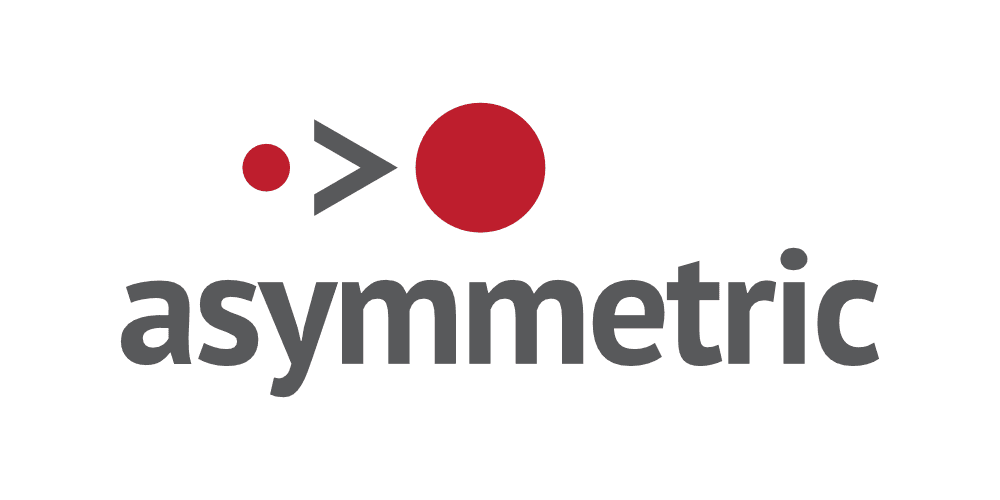Want to rank higher on search engines without spending on ads? This article delves into strategies for boosting your SEO organic results. We’ll cover organic results, why they matter, and critical tactics like quality content, on-page SEO, and backlinks. Expect practical tips and tools to enhance your website’s performance.
Key Takeaways
- SEO organic results are unpaid listings on SERPs determined by content relevance, quality, and domain authority, which users tend to trust more than paid ads.
- Critical strategies for improving organic search rankings include creating high-quality content, optimizing on-page elements, and building a solid backlink profile.
- Monitoring tools like Google Search Console and Google Analytics are essential for assessing SEO performance and making necessary adjustments to sustain long-term results.
What Are SEO Organic Results?

SEO organic results are the unpaid listings that appear on search engine results pages (SERPs) based on their relevance to the user’s query. Unlike paid search results, which are advertisements, organic search results are earned through effective search engine optimization (SEO) efforts. These results are influenced by factors such as the relevance of content, the number of inbound links, and domain authority.
Organic search refers to earning positions on SERPs through relevance and quality rather than by paying for placement. These unpaid search results are crucial because users perceive them as more trustworthy.
They occupy various positions on SERPs and may appear differently depending on the device used. The ultimate goal of organic SEO is to have your web pages rank higher in these organic listings for relevant search terms, thereby increasing your website’s visibility and attracting more organic traffic.
Importance of SEO Organic Results

Ranking well in organic search results is not just about visibility; it’s about establishing authority and credibility in your niche. When users see your site at the top of the search engine results pages, they are more likely to trust your brand. This trust translates into higher click-through rates and, ultimately, more conversions. Moreover, organic search strategies offer long-term benefits, continuously driving traffic to your site without needing ongoing investment like paid ads.
The benefits of organic search extend beyond immediate traffic. Effective SEO efforts foster sustainable brand awareness, making it a cornerstone of any long-term marketing strategy. Unlike paid search results, which stop driving traffic once the budget runs out, organic search results continue to provide value over time. This makes organic SEO a cost-effective alternative, offering impressive returns on investment.
Users often trust organic search results more than paid ads because they perceive them as more relevant and credible. This preference for organic listings can lead to higher user engagement and loyalty.
Focusing on organic search improves your website’s visibility and builds a more substantial, credible online presence. Highlighting the benefits of organic results, such as enhanced visibility, credibility, and trust, lays a solid foundation for sustained website traffic growth.
How SEO Organic Results Work
Understanding how organic search results work involves delving into the algorithms used by search engines to rank content. These algorithms assess multiple factors, including the relevance and quality of the content, to determine its position on the SERPs. Search engines like Google evaluate organic search ranking factors based on the content’s relevancy to the user’s search query, the website's usability, the context in which the content is used, and overall content quality.
Domain authority also plays a significant role in organic search rankings. Websites with higher domain authority are more likely to rank well in organic search results. Additionally, a website's internal and external linking structure is crucial. Effective linking helps search engines understand the content better and improves the site’s ability to rank higher in search results.
Focusing on these factors enhances your website’s visibility and attracts more organic traffic.
Key Ranking Factors for SEO Organic Results

You must focus on several key factors to achieve high organic search rankings. Among these, quality content stands out as the most crucial element. Additionally, on-page SEO and backlinks are essential components that significantly influence your position on search engine results pages and your organic search strategy.
These factors improve your website’s visibility and attract more organic traffic. Let’s examine each element in more detail.
Quality Content
High-quality content is the cornerstone of effective SEO. When your content aligns with the searcher’s intent, it results in better organic rankings. Creating engaging, informative, and relevant content is essential for attracting organic traffic and improving your site’s SEO performance. Incorporating multimedia elements such as images, videos, and infographics can make your content more engaging and informative, enhancing its quality.
Regularly updating old content is another effective strategy for maintaining relevance and improving SEO rankings. Search engines favor fresh, updated content that continues to meet users' needs. Consistently producing high-quality content that resonates with your audience significantly boosts your organic search results.
On-Page SEO
On-page SEO involves optimizing web pages to improve their ranking in search results. This includes optimizing meta tags, headers, and internal links. Optimizing these elements helps search engines understand the relevance of your content for specific search queries, improving your chances of ranking higher on SERPs.
Meta tags and headers play vital roles in on-page SEO. Properly optimized meta tags provide search engines with crucial information about your web page's content. At the same time, headers help organize the content, making it easier for search engines and users to navigate.
Implementing these on-page SEO strategies can significantly enhance your website’s visibility and drive more organic traffic.
Backlinks
Backlinks are links from other websites to your own and are a critical factor in SEO. The more high-quality backlinks you have, the better your site will rank in organic search results. Backlinks from older, authoritative domains are precious, as they contribute positively to your search rankings. Effective backlink building involves identifying opportunities to gain these valuable links and contacting other site owners.
Tools like Semrush’s Brand Monitoring can help identify missed link-building opportunities by tracking unlinked brand mentions. Additionally, strategies like broken link building, where you find and replace broken links with your content, can be highly effective.
Another useful tactic is crafting outreach emails to request clickable links from unlinked mentions. Leveraging these strategies builds a robust backlink profile that enhances your website’s authority and search rankings.
Tools for Monitoring SEO Organic Results

Monitoring your SEO efforts is crucial for understanding their effectiveness and making necessary adjustments. Several tools can help you track your organic search results and optimize your strategies accordingly.
These tools provide actionable data to identify trends, assess the impact of your SEO efforts, and highlight improvement areas. Let’s explore some of the most effective tools for monitoring SEO organic results.
Google Search Console
Google Search Console is a free analytics tool that helps monitor your website's health and performance. It provides valuable insights into your site’s organic rankings, visibility, click-through rates (CTRs), and indexation issues. Tracking metrics such as total clicks, impressions, and average CTR allows you to assess your site’s performance and make informed decisions about your SEO strategies.
One of Google Search Console's key features is the rank tracking tool, which allows you to monitor keyword rankings and position fluctuations. The URL inspection tool is another essential feature, enabling you to check if your pages are correctly indexed.
Additionally, Google Search Console alerts users about any issues with crawling and indexing, ensuring that your site’s performance is optimized. Uploading a sitemap through Google Search Console is also crucial for ensuring proper indexing of your pages.
Google Analytics
Google Analytics is another essential tool for monitoring SEO performance. It helps you analyze organic traffic and understand how users interact with your website. The acquisition report in Google Analytics reveals how users find your site and their first actions upon arrival, providing valuable insights into user behavior.
Analyzing these insights lets you adjust your SEO strategies to enhance user engagement and conversion rates. Google Analytics also allows you to track various metrics such as bounce rate, average time on page, and pages per session, which are crucial for understanding user engagement and identifying areas for improvement.
Keyword Research Tools
Keyword research tools are essential for identifying relevant keywords that can drive organic traffic to your website. One key tool for keyword research is Surfer Keyword Research, which provides data about keywords, including search volume, total traffic, and difficulty. These tools enable you to optimize your content effectively by focusing on high-potential keywords.
These tools also help you understand the competitive landscape and identify opportunities for improving your keyword strategy. By targeting the right keywords, you can enhance your organic search rankings and attract more organic traffic to your site.
Content Marketing
Content marketing significantly impacts SEO by enhancing organic search visibility and driving traffic to your site. Improving content quality for SEO involves aligning with search intent, enhancing readability, using multimedia, and ensuring accuracy. Creating high-quality, engaging content can attract organic traffic and improve your site’s search rankings.
Surfer Keyword Research also assists with content mapping by creating topic clusters and uncovering relevant keywords. This helps organize your content around key themes and improve its coherence and relevance. Leveraging content marketing strategies boosts your organic search performance and achieves better SEO results.
Technical SEO
Technical SEO is essential for enhancing your site’s organic search performance. Elements like mobile optimization and site speed are crucial factors that impact SEO rankings. Google’s ranking algorithm prioritizes mobile-friendly websites due to its mobile-first approach, making mobile optimization a key aspect of technical SEO.
Site speed is another critical factor affecting user experience and SEO performance. Core Web Vitals, which focus on user experience metrics like loading speed and visual stability, also significantly impact SEO rankings. Focusing on technical SEO improves your site’s performance and visibility in organic search results.
User Experience (UX)
User experience (UX) is a critical component of SEO. Engaging content is vital for attracting and retaining visitors to your website. Content should resonate with your audience, solve their problems, and provide an enjoyable reading experience. Improving readability can significantly enhance user experience by making content more accessible and easily digestible.
Using a logical structure, useful headings, and clear transitions are vital strategies for improving readability. Ensuring your content is well-organized and easy to navigate keeps visitors engaged longer, reduces bounce rates, and improves overall SEO performance.
Common Challenges in Achieving High SEO Organic Results

Achieving high SEO organic results comes with a set of challenges. One of the primary difficulties is keeping up with frequent updates to Google’s algorithm, which can make it hard to maintain alignment with best practices. Businesses must continually adapt their strategies to stay current and effective.
Another significant challenge is keyword cannibalization, where multiple pages compete for the same keyword, negatively affecting their overall ranking. This issue can dilute the effectiveness of your SEO efforts and requires careful planning to avoid. Additionally, the resource-intensive nature of maintaining an effective SEO strategy can be daunting for many businesses. The lack of time, resources, or team members dedicated to SEO can hinder progress and lead to suboptimal results.
Neglecting organic search efforts can have severe consequences. Pages not actively optimized and updated tend to drop in rankings, losing visibility and traffic. Therefore, remaining committed to your SEO strategy, even when faced with these challenges, is crucial to ensure sustained success.
Measuring Success in SEO Organic Results
Measuring the success of your SEO efforts involves tracking several key metrics. Organic search traffic is a crucial component of your marketing funnel, contributing to conversions and a higher return on investment. The Organic Traffic KPI measures the number of visitors arriving at your site through organic search results and helps provide insights into site performance.
Setting realistic expectations is essential, as SEO is a long-term process. Typically, it takes about four months to start seeing significant results from your SEO efforts. Ongoing analysis and adjustment are essential to maintain and improve your rankings. Tools like Google Search Console and Google Analytics are invaluable for tracking performance, offering data on metrics such as click-through rate (CTR), bounce rate, and average time on page.
Analyzing this data can provide insights into user behavior, preferences, and evolving search trends, supporting a long-term strategy. Indicators of success in organic rankings include a high rank, strong organic traffic, and a healthy CTR. Consistently monitoring these metrics allows you to measure the effectiveness of your SEO strategies and make informed decisions to optimize performance.
Summary
In summary, boosting your SEO organic results involves a multifaceted approach that includes creating high-quality content, optimizing on-page elements, and building a robust backlink profile. Utilizing tools like Google Search Console and Google Analytics can help monitor your progress and make necessary adjustments. The challenges are numerous, but achieving high organic rankings is possible with persistence and the right strategies.
Remember, SEO is a long-term investment. The benefits of improved visibility, credibility, and sustained traffic growth are well worth the effort. By implementing the strategies discussed in this blog post, you can enhance your website’s performance and achieve lasting success in organic search. Stay committed, keep learning, and watch your site climb the ranks.

Frequently Asked Questions About SEO Organic Results
What are SEO organic results?
SEO organic results refer to unpaid search listings on search engine results pages due to their relevance and the effectiveness of SEO strategies rather than through paid advertising. These results are crucial for driving traffic to your website without incurring costs per click.
Why are SEO organic results important?
SEO organic results are significant because they drive targeted traffic, establish your authority, and provide long-term benefits without needing continuous investment. This makes them a sustainable strategy for online visibility and growth.
How do SEO organic results work?
SEO organic results utilize algorithms that rank content based on its relevance, quality, domain authority, and linking structure. By optimizing these factors, you can improve your visibility in search engine results.
What are the key ranking factors for SEO organic results?
Quality content, on-page SEO, and backlinks are essential for achieving high rankings in organic search results. Focusing on these factors will enhance your website's visibility and credibility.
What tools can help monitor SEO organic results?
Utilizing tools such as Google Search Console, Google Analytics, and keyword research tools is crucial for effectively monitoring and optimizing your SEO organic results. These resources provide valuable insights into your website's performance and keyword rankings.

Ready to Boost Your SEO Organic Results?
The right SEO strategy is key to achieving higher rankings and driving more traffic. Let us help you implement effective tactics to grow your online presence and achieve lasting success.
Get Expert SEO Support
Need personalized advice on boosting your organic results?
👉 Schedule a Consultation
Learn More About SEO Strategies
Dive deeper into expert insights and tips to enhance your SEO efforts.
👉 Read More Related Content
Have Questions? We’re Here to Help!
Reach out to discuss your SEO goals and how we can help you achieve them.
👉 Contact Us Today
Mark Hope, Partner
📧 mark.hope@asymmetric.pro
📞 (608) 410-4450
About the author
Mark A. Hope is the co-founder and Partner at Asymmetric Marketing, an innovative agency dedicated to creating high-performance sales and marketing systems, campaigns, processes, and strategies tailored for small businesses. With extensive experience spanning various industries, Asymmetric Marketing excels in delivering customized solutions that drive growth and success. If you’re looking to implement the strategies discussed in this article or need expert guidance on enhancing your marketing efforts, Mark is here to help. Contact him at 608-410-4450 or via email at mark.hope@asymmetric.pro.

